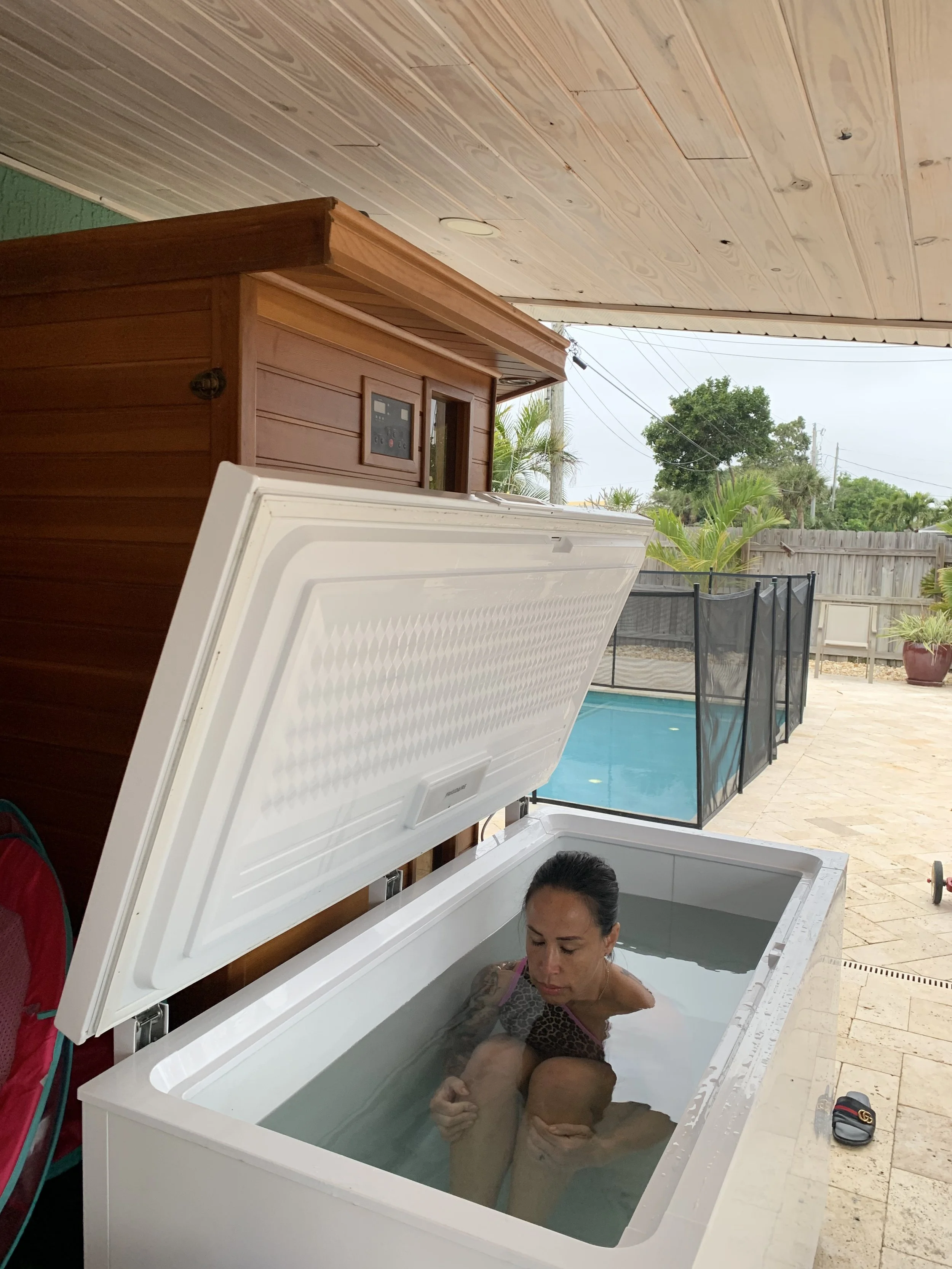Sleep Trackers Could Be the Window Into Your Health
Sleep Trackers Could Be the Window Into Your Health
Due to their usability, low cost and widespread availability, sleep tracking devices are becoming more popular for researchers to use as tools for investigating the connections between sleep, circadian rhythms, and health. Consumer sleep trackers offer scientists the chance to generate information outside of the laboratory, in more natural home environments.
Tampa Bay Holistic Wellness’s Dr. Dawn Molina, DAOM, LAc. joined Gayle Guyardo of WFLA Tampa Bay and the host of the nationally syndicated health and wellness show Bloom on September 26th, 2022 to share why these devices could be considered a window into your overall health.
What You and Your Primary Care Physician Should Know About Good Quality Sleep
Immunity: Getting good quality sleep boosts the number of antibodies and cells that fight infections. Being consistently sleep deprived can make someone more susceptible to getting sick when exposed to a virus, and it may take longer to recover from sickness.
Weight Management: A lack of sleep causes the hormones that influence hunger to over secrete and the hormones that influence satiation to under produce. People that are unrested are more likely to over-eat, which contributes to weight gain and obesity. Lack of sleep may also cause insulin resistance the day following an unrestful sleep cycle.
Heart Health: Getting good quality sleep can reduce the risk of heart diseases. During deep sleep heart rate slows, blood pressure drops, and breathing stabilizes: this reduces the stress on the heart allowing it to recover from daily strain.
Reduce the Risk of Neurological Diseases: During deep sleep the body flushes cerebral spinal fluid (CSF) through the brain, which cleans out toxic proteins that build up in the brain. Excess build up of these toxic proteins increases the risk of chronic neurological diseases like, dementia and Alzheimer's Disease later in life.
Manage Stress Better: Cortisol levels (stress hormone) typically drop to their lowest production around midnight. Not getting enough sleep means the body isn’t given enough time to reduce cortisol production. This results in elevated cortisol levels, which can impact the ability to respond to stress when we need it. Long-term elevated cortisol levels can contribute to other hormonal imbalances; e.g when cortisol levels increase, progesterone levels decrease. Elevated cortisol levels also suppress the body’s use of fats, proteins, and carbohydrates, increasing the risk of metabolic diseases like diabetes, heart diseases, and obesity.
Enhance Memory & Cognition: Research shows that good quality sleep enhances learning, long-term memory, short-term memory, and focus. Sleep deprivation makes it difficult to focus attention and to retain new information. Scientists have also found that sleep itself plays a role in memory consolidation, which is essential for learning and retaining new information.
Articles and Research
Early evening light mitigates sleep compromising physiological and alerting responses to subsequent late evening light (Scientific Reports)
Meal Timing Regulates the Human Circadian System (Current Biology)
Tsereteli N, Vallat R, Fernandex-Tajes J, Delahanty LM, Ordovas JM, Drew DA, Valdes AM, Segata N, Chan AT, Wolf J, Berry SE, Walker MP, Spector TD, Franks PW. Impact of insufficient sleep on dysregulated blood glucose control under standardised meal conditions. Diabetologia. (2022) Feb; 65(2):356-365.
Vallat R, Walker MP. An open-source, high-performance tool for automated sleep staging. Elife. (2021) Oct; 10:e70092.
Winer, JR, Morehouse A, Fenton L, Harrison TM, Ayangma L, Reed M, Kumar S, Baker SL, Jagust WJ, Walker MP. Tau and ß-amyloid burden predict actigraphy-measured and self-reported impairment and misperception of human sleep. Journal of Neuroscience. (2021) Sept; 41(36):7687-7696.
Walker MP. Sleep essentialism. Brain. (2021) Mar; 144(3):697-699.
Winer JR, Mander BA, Kumar S, Reed M, Baker SL, Jagust WJ, Walker MP. Sleep disturbances forecasts ß-amyloid accumulation across subsequent years. Current Biology. (2020) Nov; 30(21):4291-4298.
Lendner JD, Helfrich, RF, Mander BA, Romundstad L, Lin JJ, Walker MP, Larsson PG, Knight RT. An electrophyiological marker of arousal level in humans. Elife. (2020) Jul 28; 9:e55092.
Vallat R, shah VD, Redline S, Attia P, Walker MP. Broken sleep predicts hardened blood vessels. PLoS Biology. (2020) Jun; 18(6):e3000726.
Simon EB, Vallat R, Barnes, CM, Walker MP. Sleep loss and the socio-emotional brain. Trends in Cog Sci. (2020) Jun; 24(6):435-450.
Simon EB, Rossi A, Harvey AG, Walker MP. Overanxious and underslept. Nature Human Behavior. (2019) Nov; 4(1):100-110. Erratum (2020) in Nature Human Behavior, 4(12):1321.
Winer JR, Mander BA, Helfrich RF, Maass A, Marrison TM, baker SL, Knight RT, Jagust WJ, Walker MP. Sleep as a potential biomarker of tau and beta-amyloid in the human brain. Journal of Neuroscience. (2019) Aug; 39(32):6315-6124.
Krause AJ, Prather AA, Wager TD, Lindquist MA, Walker MP. The pain of sleep loss: A brain characterization in humans. Journal of Neuroscience. (2019) Mar; 39(12):2291-2300.
Helfrich RF, Lendner JD, Mander BA, Guillen H, Paff M, Mnatsakanyan L,Vadera S, Walker MP, Lin JJ, Knight RT. Bidirectional prefrontal-hippocampal dynnamics organize information transfer during sleep in humans. Nature Communications. (2019) Aug; 10(1):3572.
Simon EB, Walker MP. Sleep loss causes social withdrawal and loneliness. Nature Communications. (2018) Aug; 9:3146.





